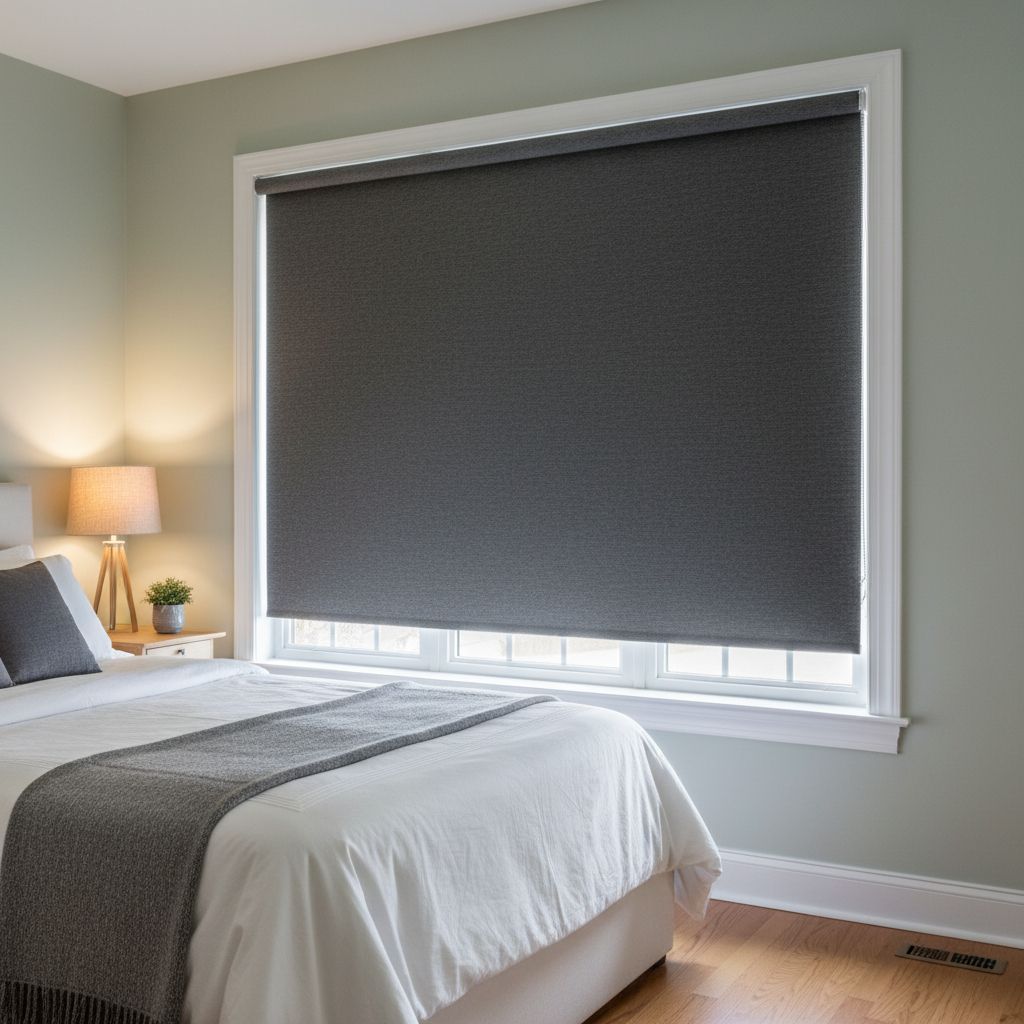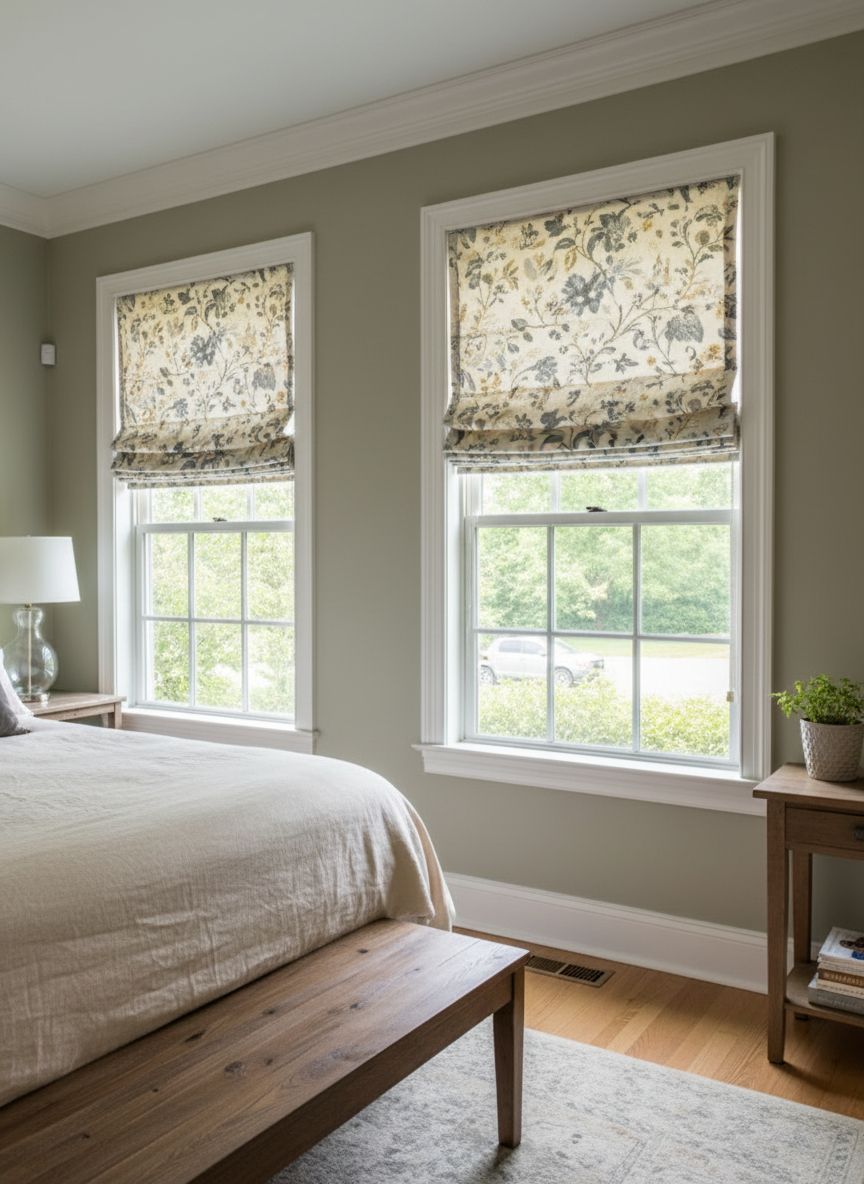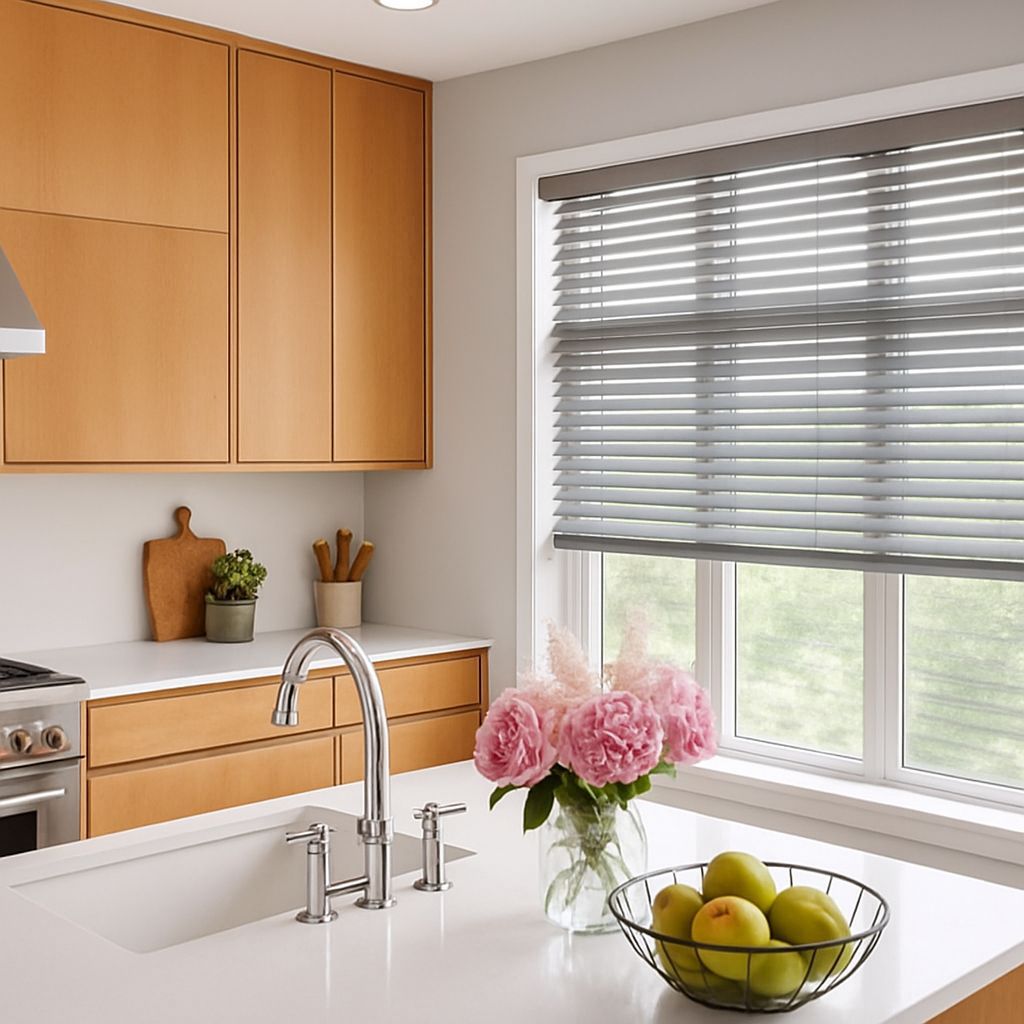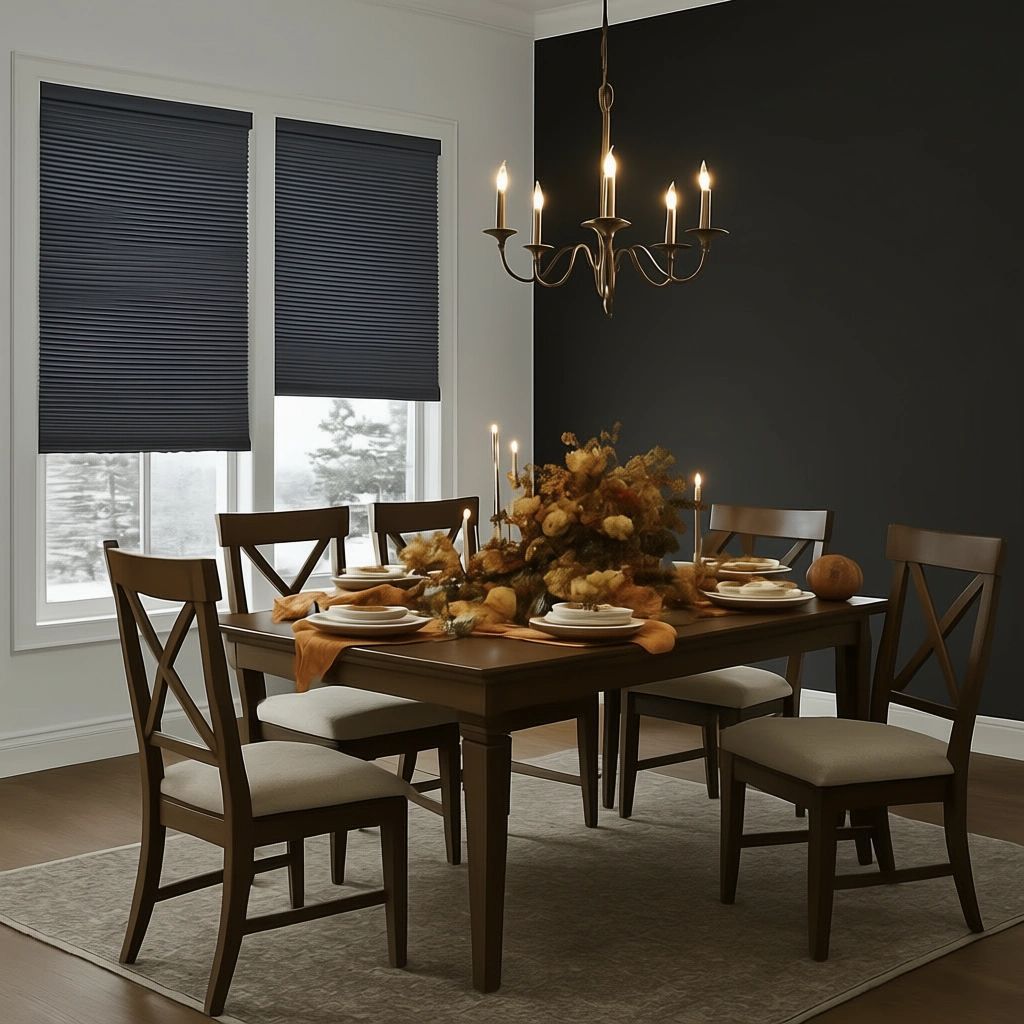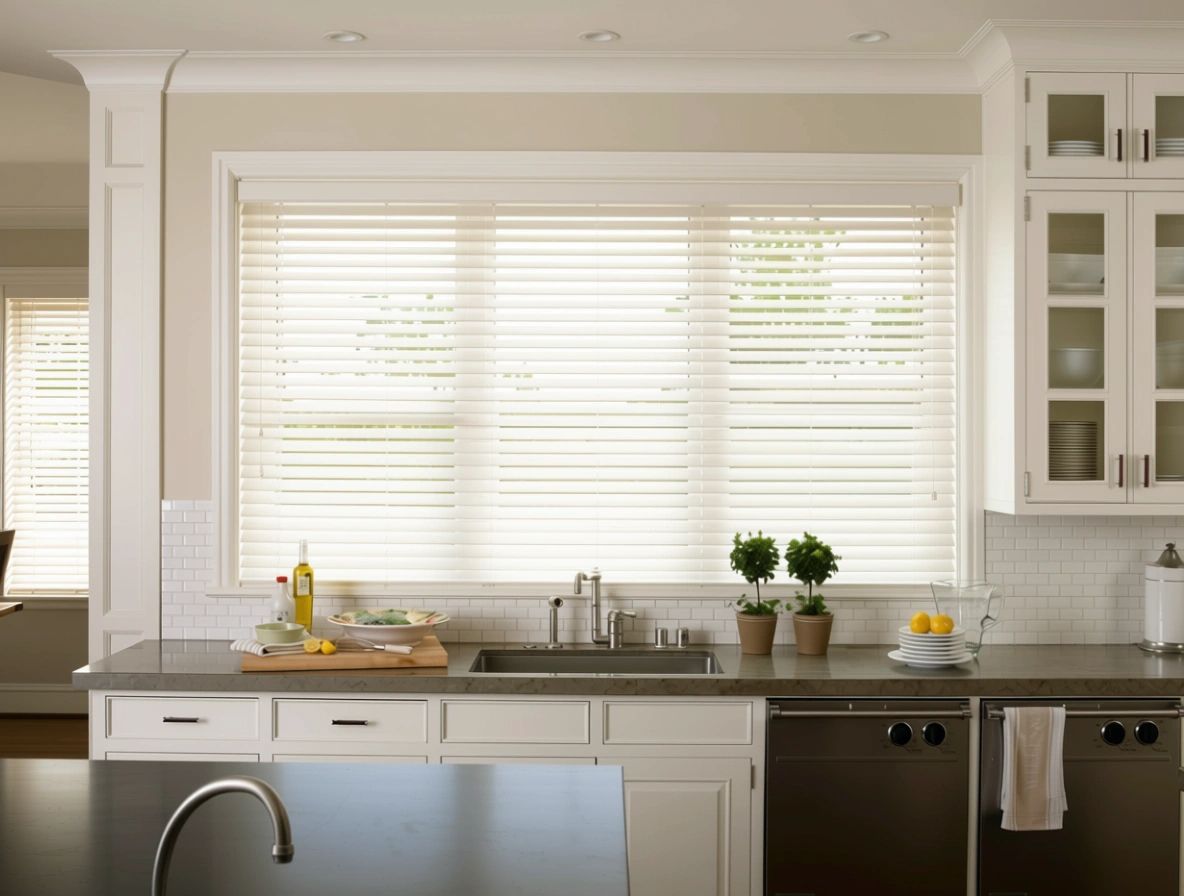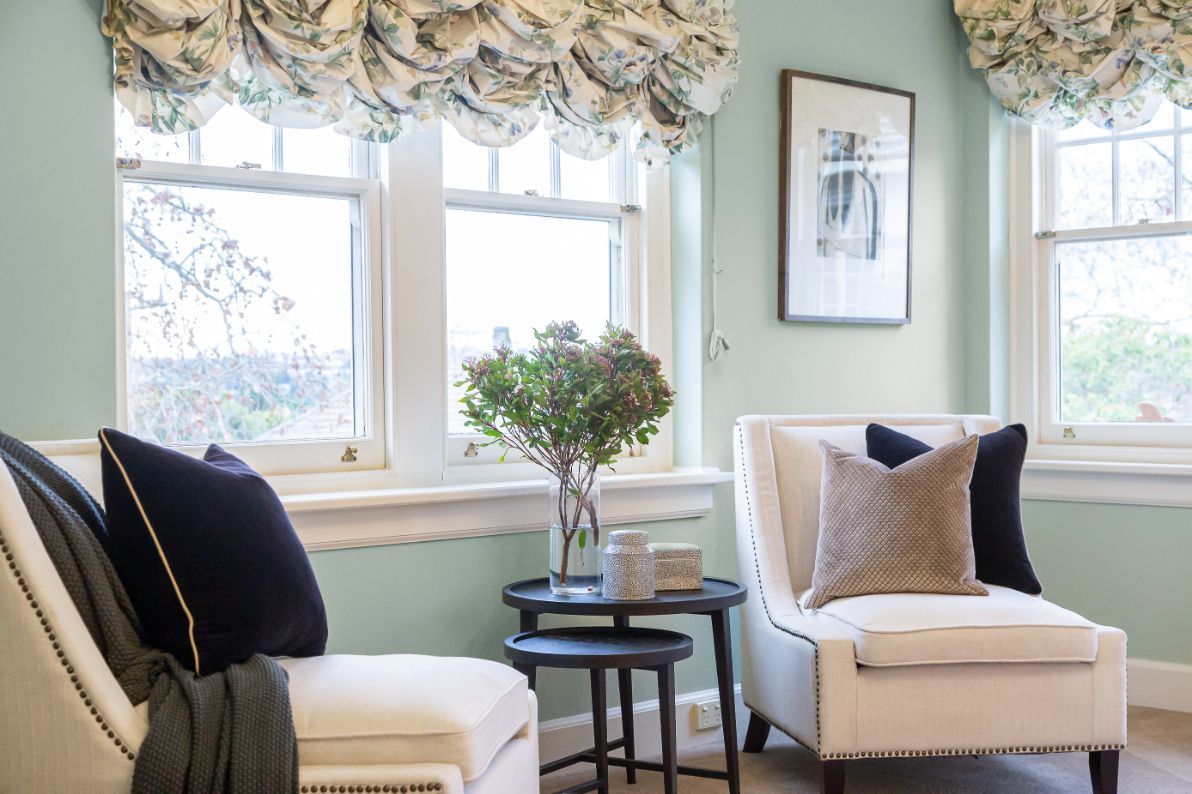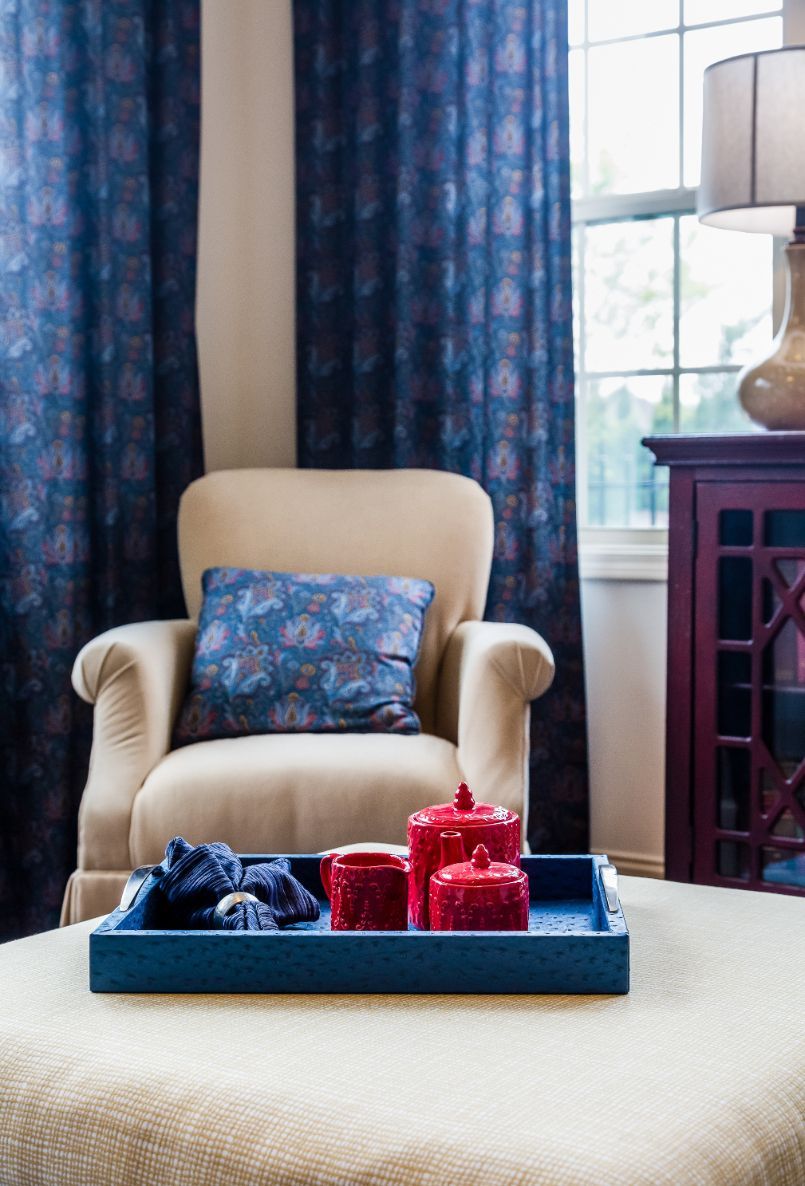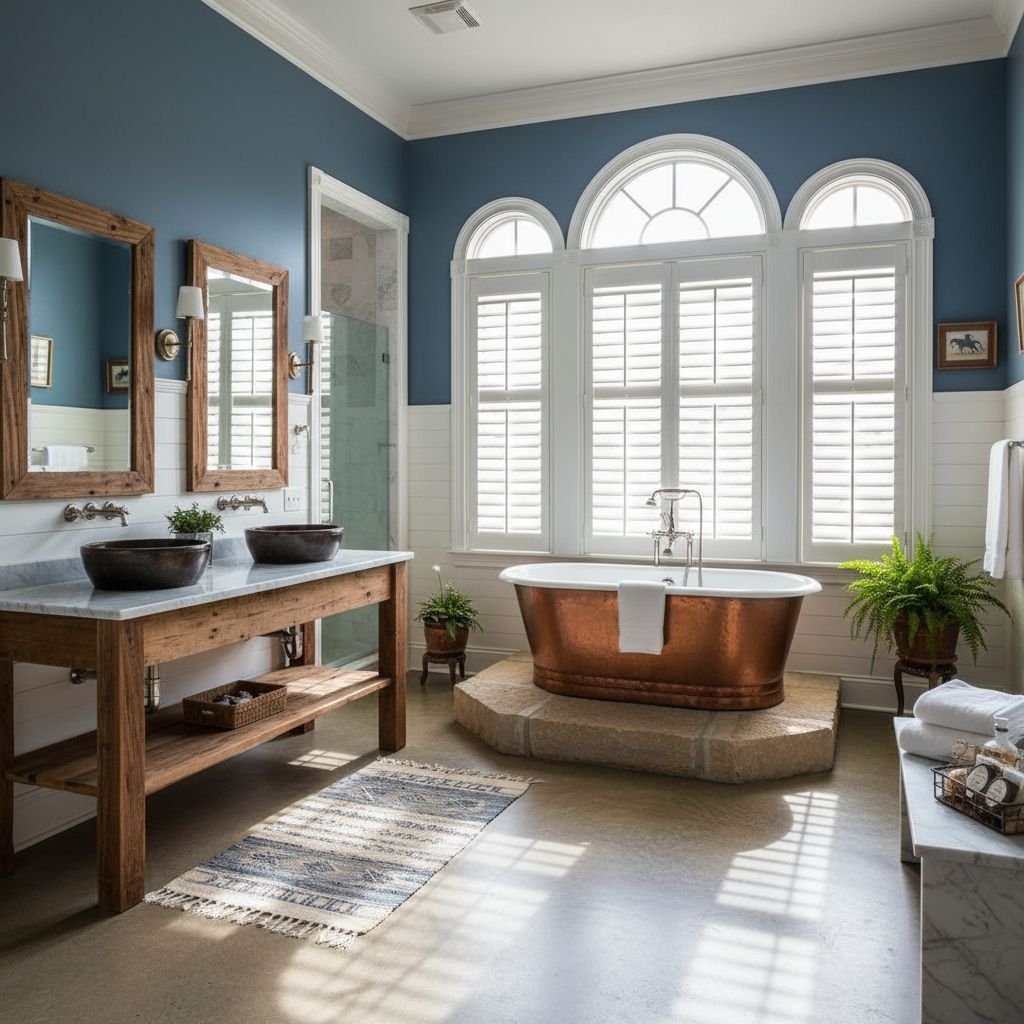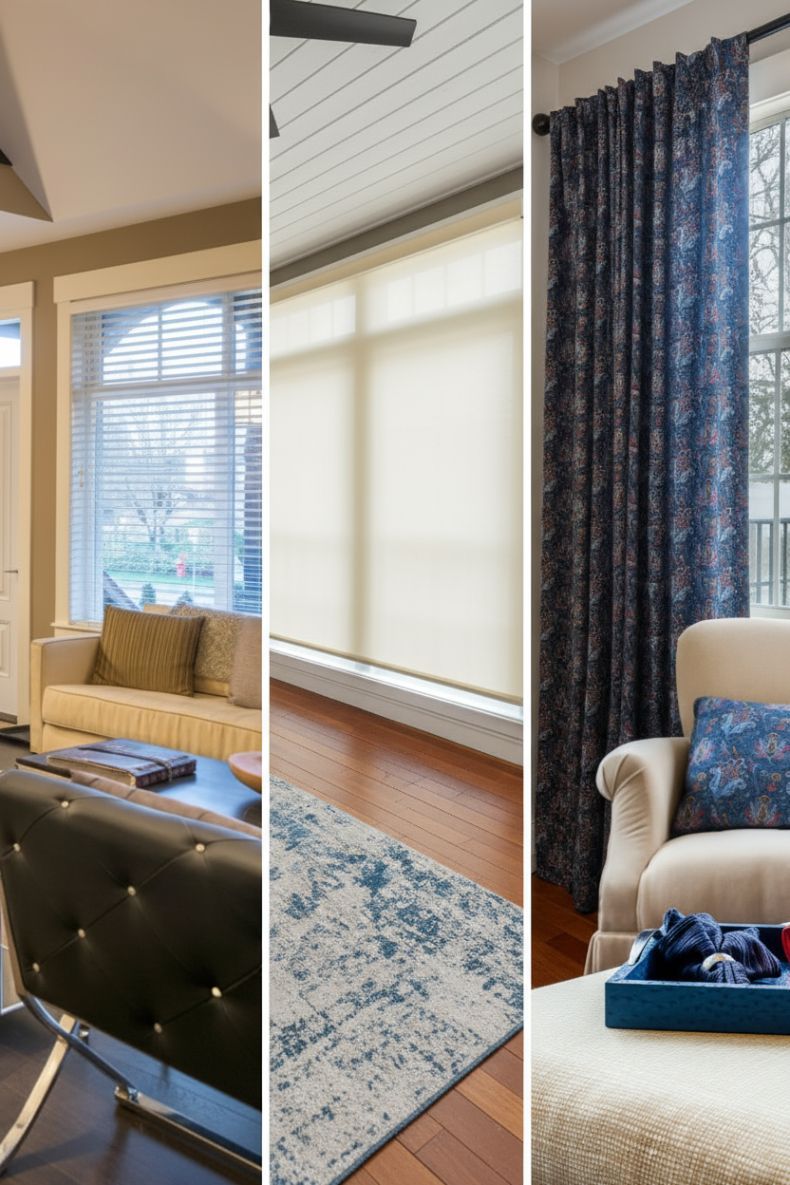What Homeowners Should Know About Layering Curtains, Shades, and Blinds
TLDR;
Layering curtains, shades, and
blinds helps homeowners control light, privacy, and insulation while adding visual depth to any room. Start with a functional base layer like blinds or shades, then add decorative curtains to achieve both beauty and practicality. The key is balancing texture, color, and purpose to suit each room’s unique needs.
Why Layering Window Treatments Matters
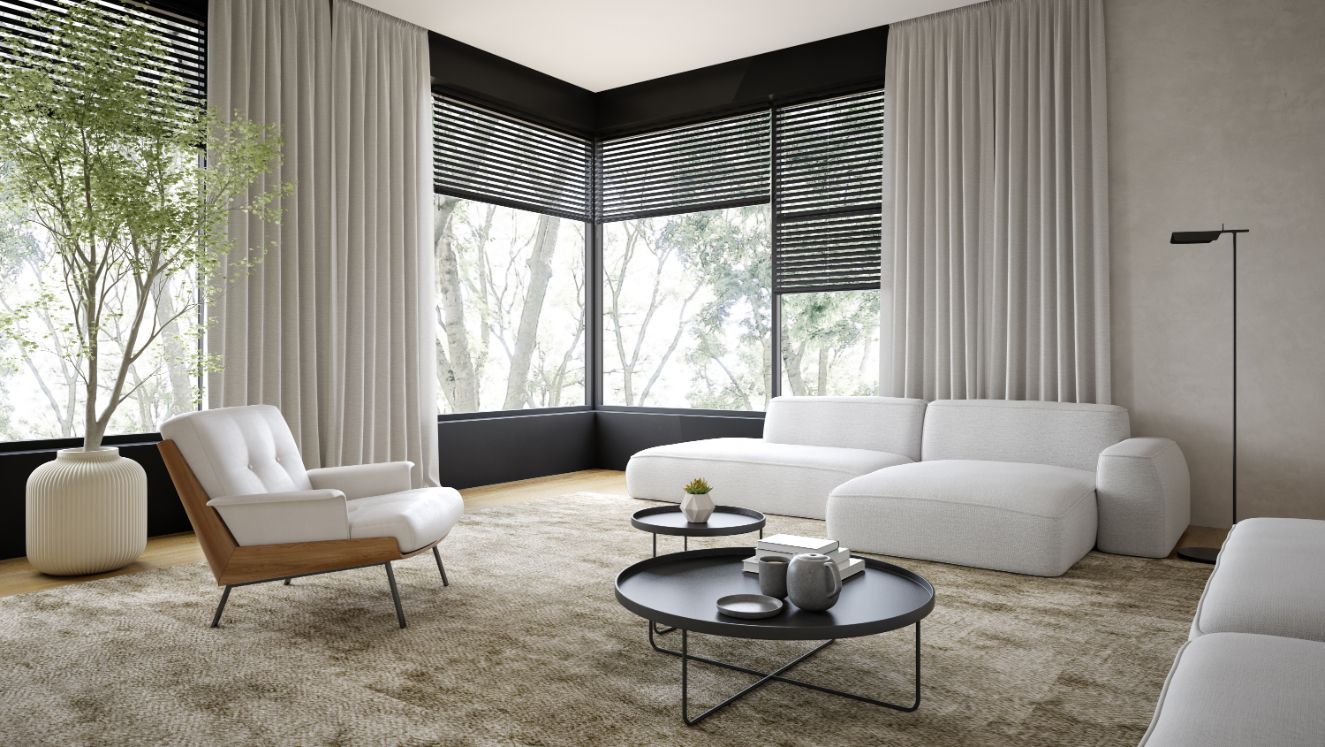
Layering curtains, shades, and blinds creates a window system that works smarter and looks better. Homeowners gain more flexibility in controlling sunlight, privacy, and insulation without sacrificing design. At Love Is Blinds KY, we recommend layering to transform ordinary windows into efficient and stylish focal points. offering some of the most versatile privacy and style window options available today.
Enhanced Light Control and Privacy
Each layer serves a distinct purpose. Blinds or shades manage direct light, while curtains provide coverage and ambiance. This combination allows you to:
- Adjust brightness without losing privacy
- Block harsh sunlight during the day
- Maintain seclusion at night without closing off the room completely
Improved Insulation and Energy Efficiency
Layering creates an additional thermal barrier. Shades and blinds help reduce heat gain, while curtains trap air and improve insulation. This means:
- Cooler rooms in summer
- Warmer interiors in winter
- Reduced energy consumption throughout the year
Visual Depth, Texture, and Design Cohesion
Layered window treatments add texture and depth that single coverings cannot achieve. Combining soft fabrics with hard surfaces like wood blinds results in balance and sophistication. Use:
- A double curtain rod for layered drapery
- Contrasting fabrics such as linen curtains over smooth roller shades
- Soft and hard window coverings for a cohesive look
Understanding the Base Layer vs Top Layer
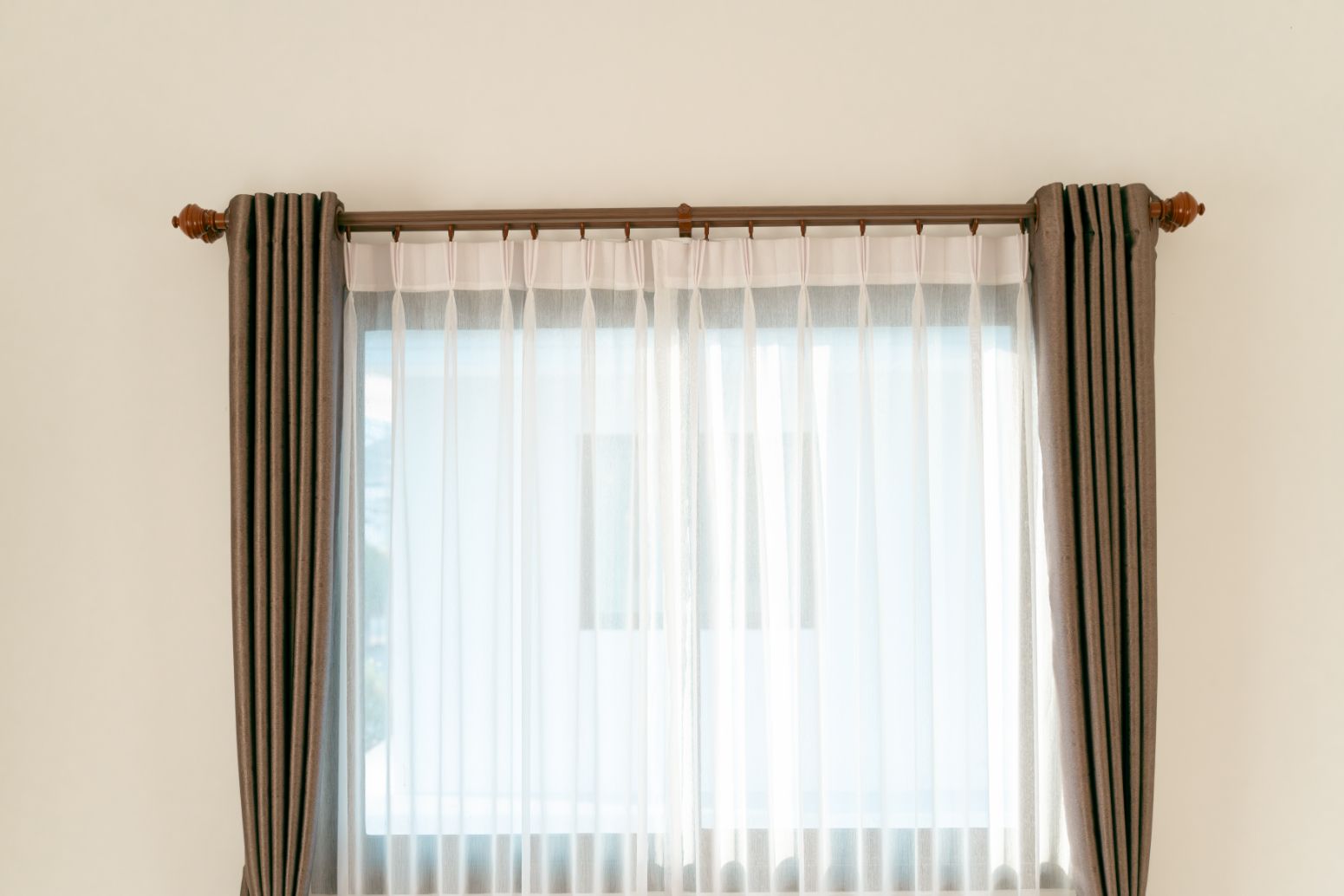
The foundation of good window layering is understanding each layer’s purpose and how they work together.
What Constitutes a Base Layer
The base layer is functional. It’s the first defense against sunlight and prying eyes. This layer often includes:
- Roller shades
- Cellular or honeycomb shades
- Wood or
faux wood blinds
- Plantation shutters
These base layers manage privacy and control the amount of light that enters the room.
What Constitutes a Second or Top Layer
The top layer adds softness and completes the look. Curtains or drapes bring texture, movement, and warmth. Common options include:
- Linen or velvet curtains
- Sheer panels for diffused light
- Blackout drapes for bedrooms
Why the Layering Order Counts
Always install the base layer closest to the window to control light effectively, then mount the decorative layer outward. This setup ensures ease of use and enhances visual proportion.
Popular Layering Combinations and When to Use Them
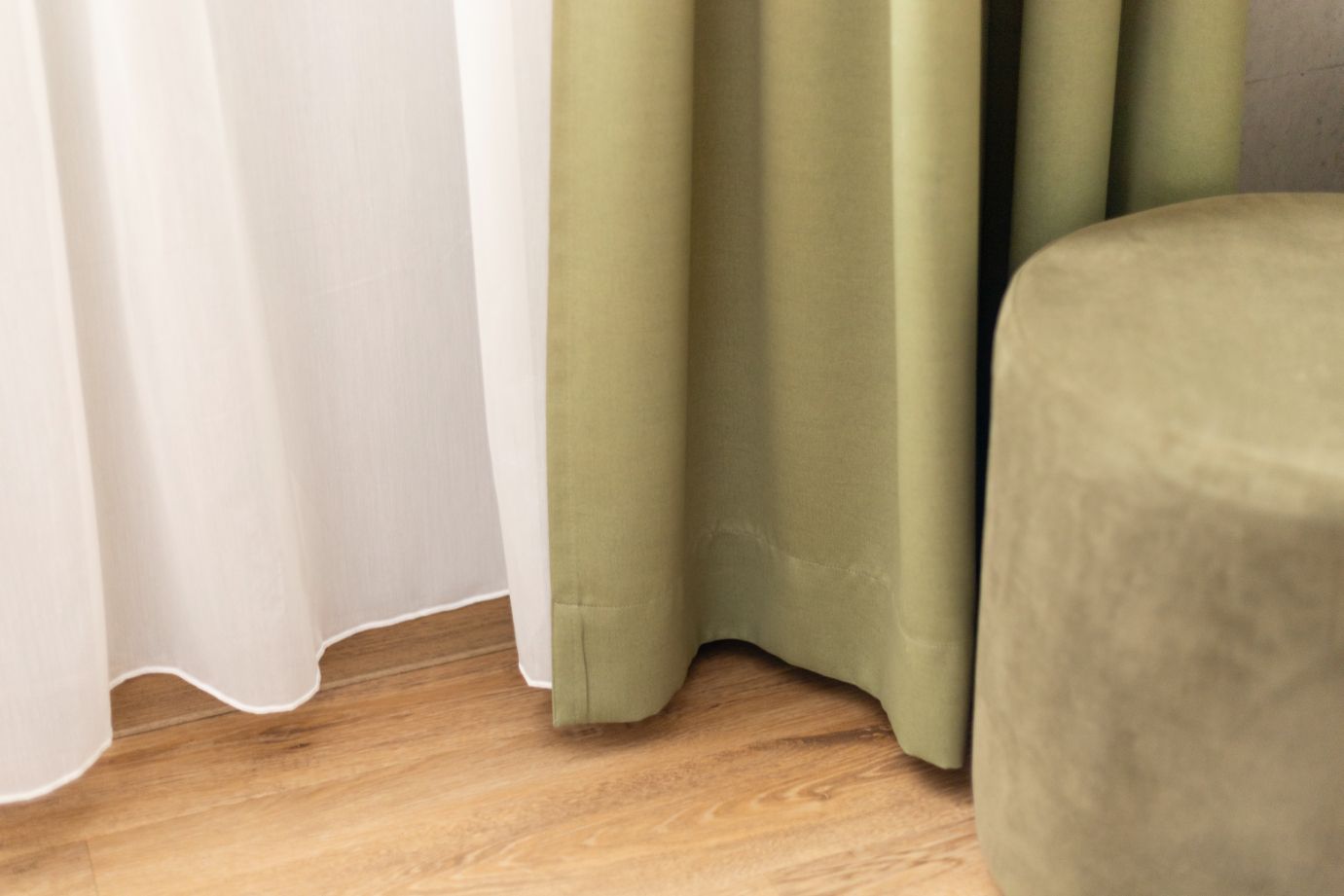
Each room and homeowner’s preference will influence which combination works best.
Shades and Drapery Panels
Pairing roller or Roman shades with curtains offers versatility. The shade provides privacy and light control, while curtains soften the appearance. Ideal for living rooms or offices.
Blinds and Curtains
This is one of the most common pairings. Wooden blinds bring structure, while fabric curtains add elegance. Perfect for family rooms and bedrooms where both function and style matter.
Shutters and Soft Treatments
Plantation shutters paired with sheer curtains are timeless. The
shutters offer full light and privacy control, while sheers introduce a gentle layer of softness. Great for dining rooms and traditional spaces.
Dual Shades or Double-Layer Soft Treatments
Dual
window treatments like layered roller shades or a combination of blackout and light-filtering fabrics provide total flexibility. They’re ideal for multi-purpose spaces or rooms with changing light conditions.
How to Choose Materials, Textures, Colors, and Hardware
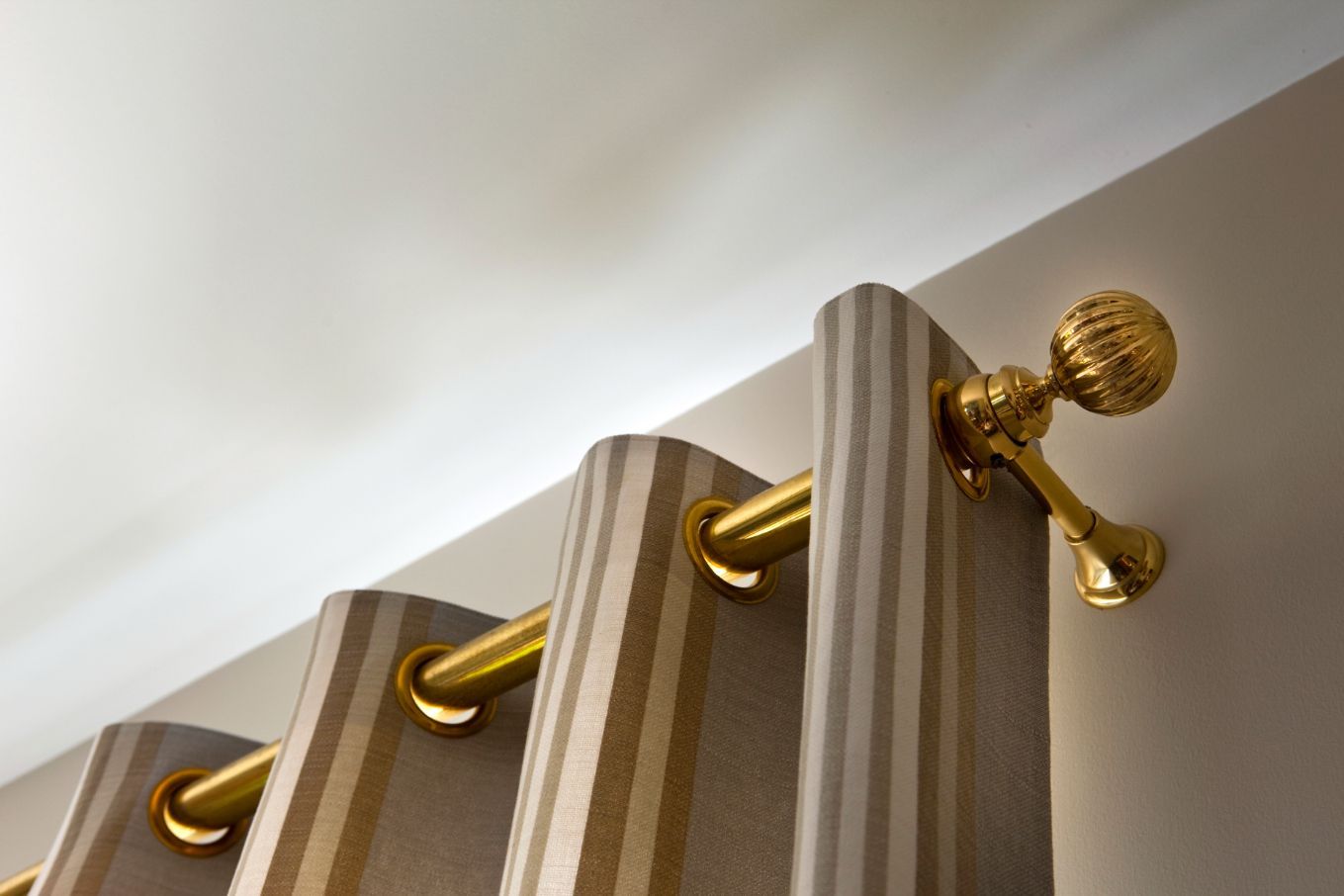
Your material and color choices influence both aesthetics and performance.
Mixing Textures: Smooth Blinds vs Textured Curtains
Balance smooth finishes with textured fabrics. For instance:
- Pair sleek
roller shades with linen curtains
- Combine woven wood shades with velvet drapery
- Use textured sheers for subtle visual interest
Color Coordination: Neutrals vs Accent Colors
Keep a cohesive color palette. Use neutrals as a base and introduce accent tones sparingly.
- Neutrals: timeless and versatile
- Accent tones: create a focal point
- Patterned layers: one layer patterned, the other solid
Hardware Matters: Rods, Tracks, and Mounting Options
Hardware is the structural element that supports the entire setup. Choose sturdy and stylish pieces such as:
- Double curtain rods for multiple layers
- Ceiling-mounted tracks for modern spaces
- Inside mounts for minimalistic looks
- Outside mounts for added height and drama
Measuring, Installation Tips, and Avoiding Common Mistakes
Accurate measurements are critical.
- Measure window width and height carefully
- Leave space between each layer to prevent bunching
- Hire a professional for complex installations
- Ensure proper clearance for opening and closing layers
Room-by-Room Layering Tips for Homeowners
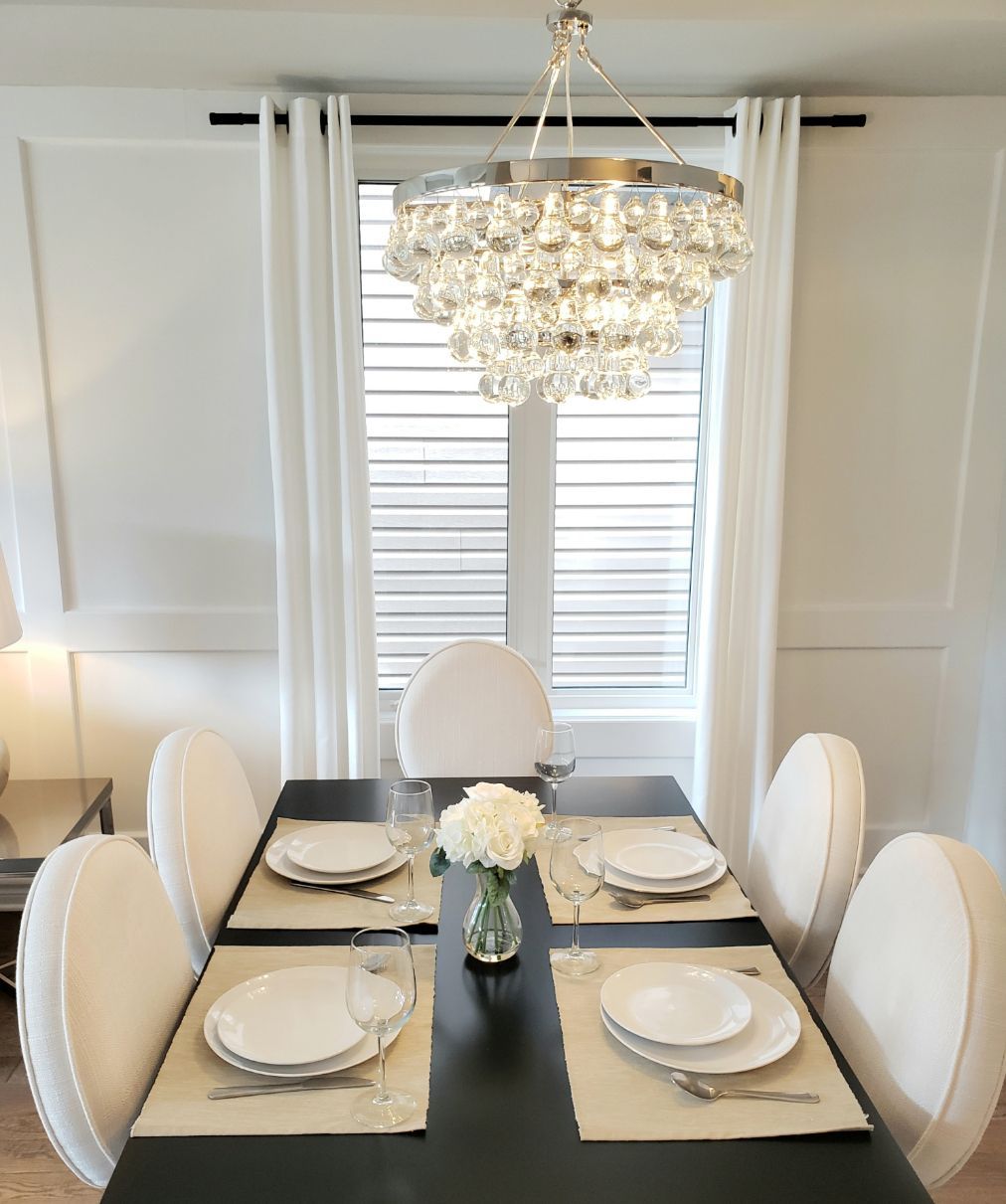
Each room serves a different purpose, so window treatments should adapt accordingly.
Living Room or Open Plan Spaces
Use light-filtering shades combined with decorative curtains to maintain brightness while reducing glare. Choose materials that complement furniture and flooring.
Bedroom: Focus on Blackout and Insulation
Bedrooms need full privacy and darkness. Combine
cellular shades or blackout roller shades with heavy drapes for comfort and energy savings.
Dining Room or Formal Areas
Use Roman shades with elegant drapery for a refined appearance. Soft fabrics like silk or velvet elevate formality without overpowering the space.
Sliding Doors and Large Windows
Layer vertical blinds or panel track shades with floor-length curtains. This combination maintains easy access and flow while controlling light across wide spans.
Common Mistakes and Maintenance Tips
Avoiding errors ensures both functionality and longevity.
Ignoring Window Frame Size or Rod Height
Install curtain rods higher and wider than the window frame to make ceilings appear taller and rooms larger.
Matching Everything Too Closely
Contrast creates interest. Mixing different tones and materials keeps the space from looking flat.
Skipping Measurements or Using Improper Hardware
Improper sizing leads to poor functionality and uneven appearance. Always measure twice before buying.
Maintenance and Longevity
Proper care extends lifespan and maintains aesthetics.
- Dust blinds and
shades regularly
- Wash or dry-clean curtains as recommended
- Inspect hardware for loosening or sagging over time
Cost, Budgeting, and When to Hire a Professional
Layering window treatments offers flexibility at every price range.
DIY vs Custom Solutions
Homeowners can combine ready-made options for a budget-friendly project. For more complex setups, custom treatments ensure perfect fit and professional finish.
When Layering Becomes Complex
Large windows, motorized systems, or curved frames may require expert installation. Professionals ensure smooth operation and balanced proportions.
Value to Home Resale and Functionality
Layered treatments enhance both appearance and performance. Homes with well-designed window treatments often feel more complete and energy-efficient, which contributes positively to resale value.
Practical Takeaways for Homeowners
Layering curtains, shades, and blinds isn’t only about style. It’s about control, comfort, and function. Homeowners should:
- Define their goals: privacy, light, insulation, or design impact
- Select a practical base layer first
- Add a complementary top layer for softness and contrast
- Choose hardware suited to weight and spacing needs
- Maintain layers regularly for long-term performance
At Love Is Blinds KY, we help homeowners create combinations that achieve all three goals: comfort, style, and energy efficiency. The right layers turn windows into design features that enhance your home’s personality while improving its daily function.

